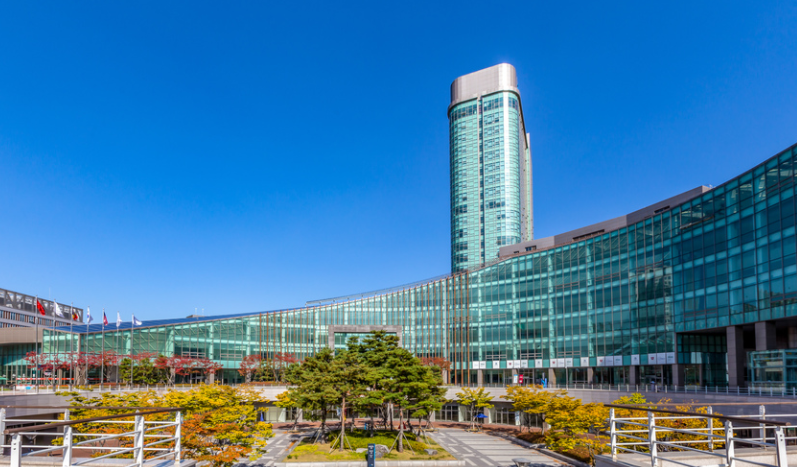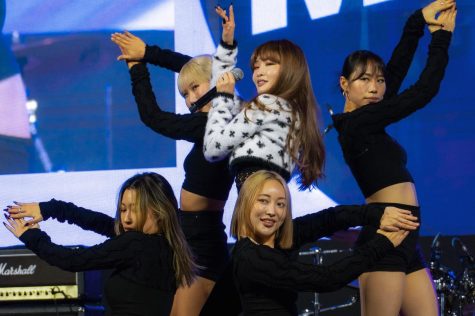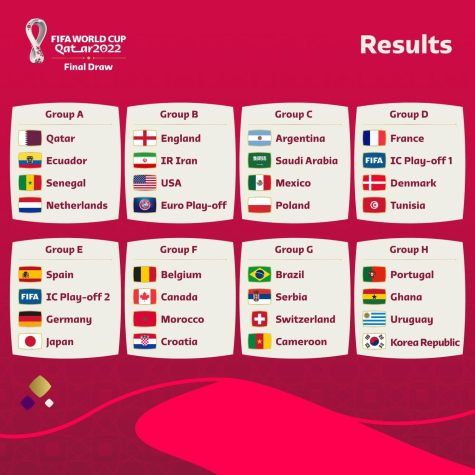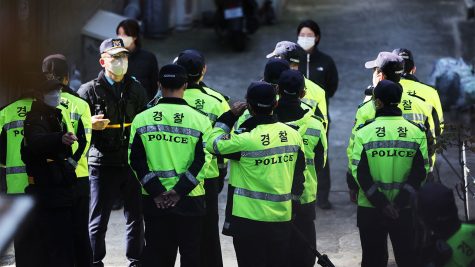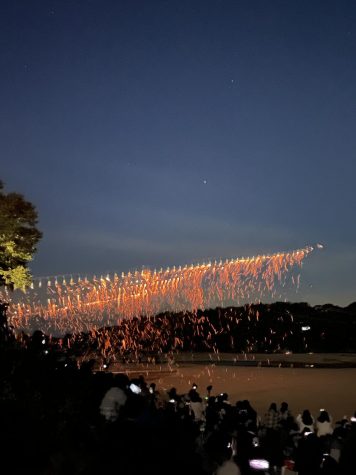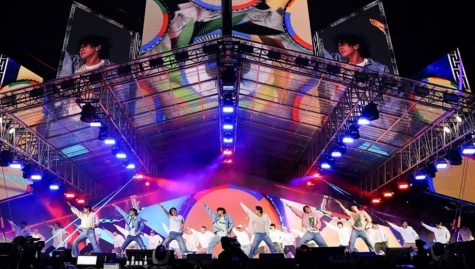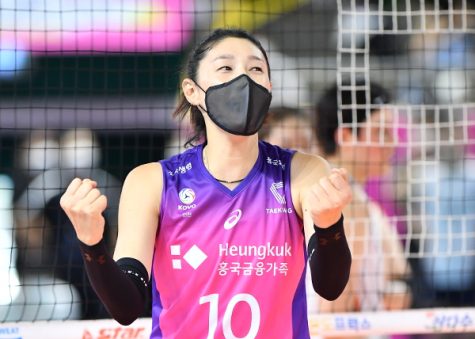Incheon Global Campus Remains Alive, Well and Covid-Free After Reopening its Doors
Incheon Global Campus in Songdo. Home to four international universities from Europe and the United States
October 21, 2020
All four universities on Incheon Global Campus (IGC) announced that they will resume in-person, hybrid classes from Monday, October 19th. However, many students worry as the coronavirus health pandemic is still an on-going issue in South Korea.
Ghent University Global Campus (GUGC) already started face-to-face teaching on October 5th. According to an inside source, so far, they are holding laboratory practical and physical attendance is mandatory.

Philip Koo (19), second semester student at George Mason University Korea (
GMUK) noted that each institution in IGC uses a different hybrid system. At GMUK, he said, “The courses that I
only have once a week will have the meetings biweekly, and more than two classes will be held alternatively. It means, i
f a course is on Monday and Wednesday, Monday will be online, and Wednesday will be the in-person lecture.”
Similarly, the University of Utah Asia Campus (UAC) separated 50 percent of the courses for in-person, which are necessary.
The State University of New York, Korea (SUNY Korea), decided to have hybrid until the final decision confirmed. The final decision about resuming video-live lectures would be announced after the students’ opinion gathered by voting.
However, some students from UAC are unsatisfied with its decision. Sanha Gim (20), third semester at UAC expressed hardship of physical attendance on campus.
“Only one from the courses that I am taking is in-person. And because of this, I have to attend the campus from Seoul, which takes about 3 hours to get to the campus and back to home. The campus should’ve decided it much earlier.” The problem of the late announcement is the students cannot prepare for face-to-face classes. Especially, check-in for the dormitory is the biggest issue for them.
She added, “Actually, I just do not agree with the decision about resuming hybrid lectures. I do not think it will make a big difference but increases the risks of spreading COVID-19.”Phillip also noticed, “it is too early that we physically meet in a small room. It benefits having campus-life, but it’s a too risky moment to enjoy it. I hoped we continued online classes.”
Furthermore, Donghwan Kim (19) from SUNY Korea, a first semester student commented on the current situation from the freshmen point of view. “Honestly, it will be the barriers for the students who never had in-person lectures from the campus, like me. It is already the middle of the semester…it (hybrid system) does nothing.”Since the number of COVID-19 positive cases in South Korea is increasing, the students’ academic benefits could not be guaranteed due to continuing online format.
Donghwan said, “The part of tuition fee is about using the campus, including library and classrooms. So, I want some of the fees back as we cannot use the environment properly.”
The UAC returned 150 dollars of the tuition fees, the GMUK discounted 500 dollars, and the SUNY Korea paid back 400 dollars in the US dollar. The tuition fees for SUNY Korea, the GMUK, the GUGC and the UAC located at IGC in Incheon are about 10,000 dollars in the US dollar for each semester.
James Kim (20), third semester at GUGC asserted, “I think the hybrid format is fair for our learning. The laboratory practical cannot be learned from theories. So, I believe resuming the hybrid lectures is necessary and acceptable.”
In the meantime, he was disappointed in the way GUGC dealt with students’ campus life in COVID-19 circumstance. The tuition fees have not been discounted for GUGC students, even though the quality of the video class is not as grateful as in-person lectures.
All campuses at IGC began distance learning through the internet from Spring Semester 2020 due to the COVID-19 in South Korea.
The first case of COVID-19 positive in South Korea was discovered in January 2020. Fortunately, the COVID-19 in South Korea is getting better as the number of daily infected cases are below 100 for five consecutive days.

